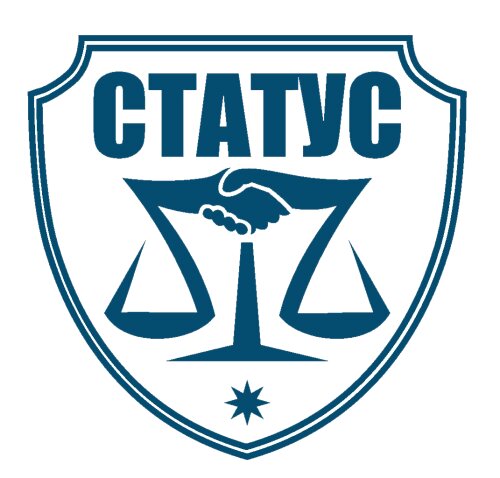Best Tax Lawyers in Russia
Share your needs with us, get contacted by law firms.
Free. Takes 2 min.
Or refine your search by selecting a city:
List of the best lawyers in Russia
About Tax Law in Russia
Tax law in Russia is governed by the Russian Tax Code, which outlines the obligations of individuals and businesses in terms of tax payments. The system is primarily administered by the Federal Tax Service, which oversees the collection and enforcement of tax legislation. Corporate income tax, value-added tax (VAT), personal income tax, and social taxes are among the significant taxes levied in Russia. The government regularly updates tax laws to streamline processes and improve compliance, making it essential for taxpayers to stay informed about any changes.
Why You May Need a Lawyer
There are numerous situations where seeking legal advice in the field of tax may be necessary for individuals and businesses in Russia:
- Tax Disputes: If you are involved in a disagreement with the Tax Authorities regarding the amount of taxes owed or penalties imposed, a lawyer can help navigate the complexity of tax litigation.
- Complex Business Transactions: For businesses engaging in mergers, acquisitions, or other significant financial activities, legal guidance ensures that all tax implications are properly managed and documented.
- Tax Planning: A tax lawyer can provide strategic advice to minimize tax liabilities through effective planning and compliance with the law.
- International Taxation: If your business is involved in cross-border trade, a lawyer can help in understanding treaties, tax credits, and obligations under both Russian and international law.
- Compliance Issues: Staying compliant with Russian tax laws is critical to avoid fines and legal actions. Legal advice may be necessary to ensure compliance for complex tax situations.
Local Laws Overview
In Russia, the tax system is comprised of various taxes at federal, regional, and local levels. Key aspects include:
- Personal Income Tax (PIT): Generally, residents are taxed on their worldwide income at a flat rate of 13%, while non-residents face an increased rate.
- Corporate Income Tax (CIT): The standard rate is 20%, differing across regions depending on economic incentives.
- Value-Added Tax (VAT): Applied at a general rate of 20%, with reduced rates covering essential goods and social services.
- Social Taxes: These are contributions for social security and healthcare payable by employers.
- Customs Duties: Applied on the importation of goods into Russia, impacting international businesses.
Frequently Asked Questions
What is the standard rate of VAT in Russia?
The standard Value-Added Tax (VAT) rate in Russia is 20%, with some goods and services being eligible for reduced rates.
Do non-residents pay higher personal income taxes in Russia?
Yes, non-residents typically face a higher personal income tax rate compared to residents.
What corporate tax incentives are available?
Russia offers various tax incentives at both federal and regional levels to stimulate investment, including reduced rates and tax holidays in certain sectors.
How often does the Russian tax legislation change?
Tax laws in Russia are often updated, usually annually, to reflect economic needs and international standards.
Are gifts subject to taxation?
Gifts are generally subject to personal income tax for the recipient, unless exempt under certain conditions.
How are dividends taxed in Russia?
Dividends are generally taxed at a 13% rate for residents and 15% for non-resident individuals.
Can foreign businesses benefit from Russian tax treaties?
Yes, foreign businesses can benefit from tax treaties to avoid double taxation and reduce withholding tax rates.
What should I do if I receive a tax audit notice?
It's advisable to consult with a tax lawyer to prepare for the audit process and ensure compliance with legal requirements.
How long is the statute of limitations for tax claims in Russia?
The statute of limitations for tax claims in Russia is typically three years from the tax year in question.
Are there penalties for late tax filings?
Yes, late tax filings can lead to penalties and interest charges being applied by the tax authorities.
Additional Resources
For additional information or assistance, consider reaching out to the following resources:
- Federal Tax Service of Russia: The main body responsible for tax administration and policy.
- Russian Ministry of Finance: Provides updates on tax legislation and regulations.
- Local Chambers of Commerce: Can offer guidance, particularly for businesses with unique tax considerations.
- Professional Tax Consultants: Often provide specialized services tailored to individual or business needs.
Next Steps
If you need legal assistance in tax matters, it's advisable to consult a qualified tax lawyer. Start by seeking recommendations and assessing potential lawyers based on their experience and expertise with Russian tax law. Prepare all relevant documents and information to facilitate a comprehensive review of your situation. Establish clear communication and expectations to ensure effective legal representation and advice in navigating the complexities of tax law in Russia.
Lawzana helps you find the best lawyers and law firms in Russia through a curated and pre-screened list of qualified legal professionals. Our platform offers rankings and detailed profiles of attorneys and law firms, allowing you to compare based on practice areas, including Tax, experience, and client feedback.
Each profile includes a description of the firm's areas of practice, client reviews, team members and partners, year of establishment, spoken languages, office locations, contact information, social media presence, and any published articles or resources. Most firms on our platform speak English and are experienced in both local and international legal matters.
Get a quote from top-rated law firms in Russia — quickly, securely, and without unnecessary hassle.
Disclaimer:
The information provided on this page is for general informational purposes only and does not constitute legal advice. While we strive to ensure the accuracy and relevance of the content, legal information may change over time, and interpretations of the law can vary. You should always consult with a qualified legal professional for advice specific to your situation.
We disclaim all liability for actions taken or not taken based on the content of this page. If you believe any information is incorrect or outdated, please contact us, and we will review and update it where appropriate.
Browse tax law firms by city in Russia
Refine your search by selecting a city.















